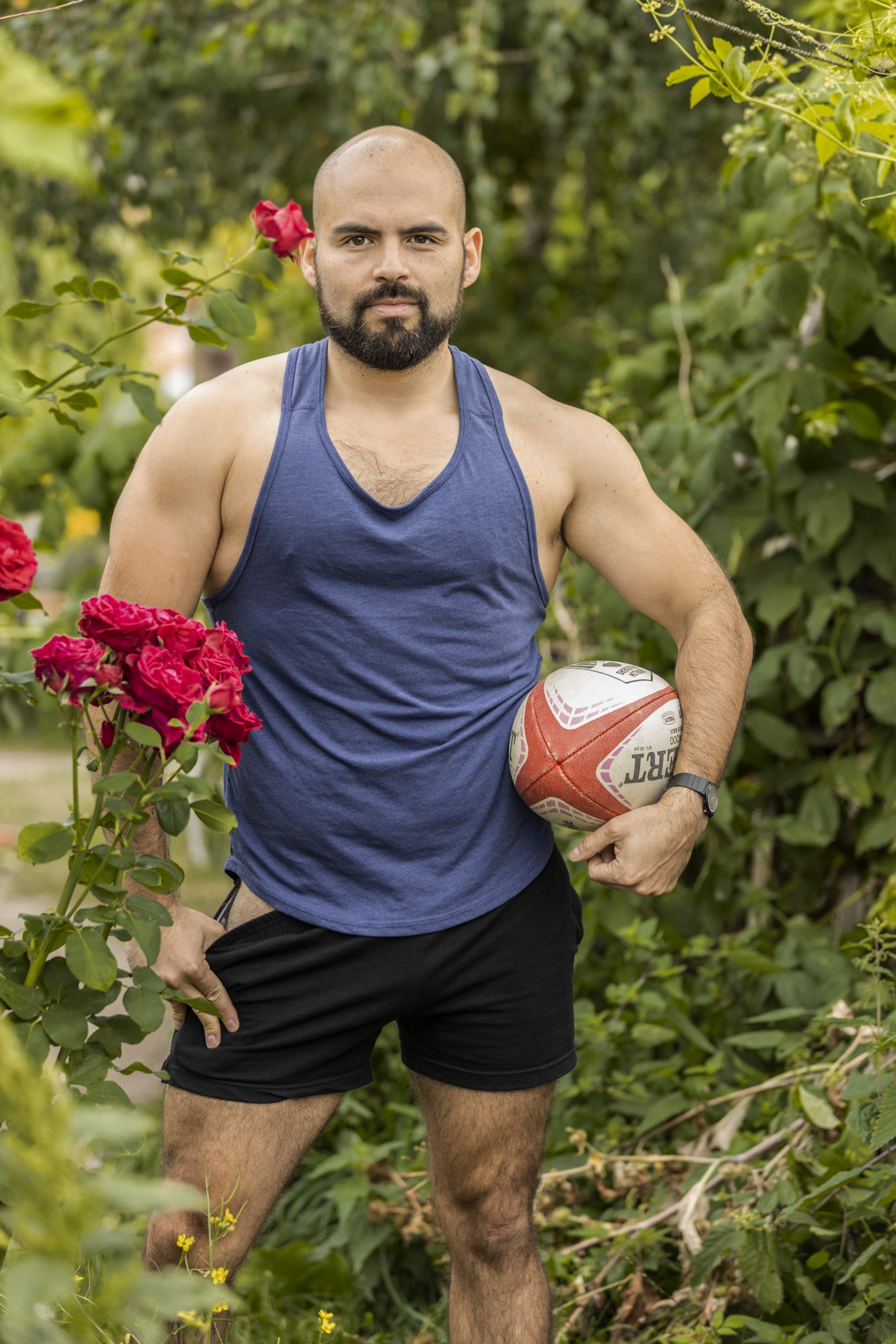‘When I was twelve, there was an older guy in my physical education class who was more developed and hairier “down there.” I kept looking at this body, which was so different to mine and my other classmates’. I was curious about him and attracted to him, and all I could think was: I cannot let anyone know about this.
At age seventeen, I went to my first gay club. It was a rather dodgy place with no signs outside. At around three AM, suddenly all the lights came on. The police entered to get their bribes. At that time, homosexuality was no longer illegal in Chile, but you could still get arrested for immoral behaviour. I was terrified.
Soon after, I came out to my mother, who couldn’t handle her son being gay. She told my dad, who took me to see doctors and psychiatrists. My mother prevented him from kicking me out, but one thing was certain: I wasn’t his son anymore. We didn’t talk, but if we did, it was only to fight. I lost him and he lost me.

Image: Elvin Boer
A therapist once told me: “You have to be who you are and live with that.” Therapy has helped me to see that this little boy is an adult now who has the power to fight back.
I am a fighter. In Chile, I have protested against inequality in the medical health system and in the university system. Police infiltrated our marches, they triggered the violence that then became an excuse for them to use tear gas. It was dangerous and scary, but when you are with your comrades, you get this incredibly empowering feeling of being with your family.
‘We shouldn’t sit back and relax, we are still being discriminated against everywhere’
I know when something works for me and when it doesn’t. When it doesn’t, I will find another way, I will not get stuck. I grew frustrated by Chile: its social injustices, its corruption, my father. I applied for various science programs abroad and got a scholarship in Germany.
Life is good in Berlin. It’s a queer bubble. But we shouldn’t sit back and relax. LGBTQ people are still being discriminated against everywhere. In some countries, you can get hung and stoned for being queer. Compared to straight people, our suicide rate is higher everywhere, also here in Germany. The unfairness of it makes me angry, so I march, I organise, I try to make a difference.

Image: Elvin Boer
In the summer of 2015, I went to Christopher Street Day, where I saw the Berlin Bruisers marching, Germany’s LGBTQ rugby team. I went to their training sessions and soon began playing in their league. Rugby is a sport that requires different kinds of people, it requires different body types, all shapes and forms. It requires cooperation. You become so connected with each other that the team becomes your family. It is a chosen family. It is home.
‘I will not censor the stories I tell about my life’
I learned to be happy with the way I look. I like my face, my eyes, my strong legs, and my beard. My beard is full and it makes me more attractive to other guys. Almost all Berlin Bruisers, almost all gay men have a beard nowadays. Maybe it’s a tribal thing, a sign of belonging. It makes sense.
When I visit Chile now, I choose not to see my father. I might never see him again. That’s painful. But I refuse to censor the stories I tell about my life. Censuring is disrespectful and harmful to me.’

